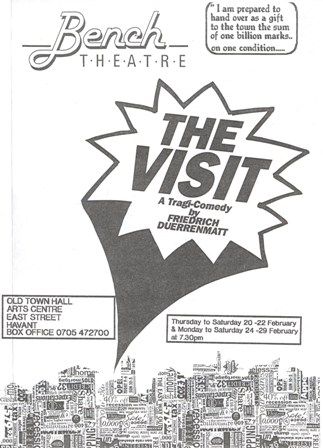

Now that Claire has risen out of her prostituted state, she attempts to turn the world into her own, personal "brothel", as she announces to the Doctor and the Schoolteacher at the beginning of the third act. For Claire's first husband, the elderly Armenian millionaire from whom Claire inherited her fortune, wealth was able to purchase a beautiful, young wife. The purchase of sex is a physical manifestation of power, and presses the one who is purchased into a corrupted, degraded state. She was branded a corrupt woman, and learned an intense lesson about the sexual marketplace: male sexual desires can be satisfied by wealth. In the wake of her failed paternity suit, Claire became a prostitute and fell into a degraded state in which she lived outside of societal norms. Prostitution is expressed in a number of different ways throughout the play. In the face of impending wealth and prosperity, even the Mayor, the opposing political faction, and the police become complicit in Claire's scheme. It is important to note that the political institutions helpful in fashioning and enforcing an idea of "justice" in society are corrupted and rendered passive in "The Visit".

She purchases each man's life, thus proving that her wealth is capable of altering the very essence of the American justice system. In an ironic inversion of Claire's decree, Claire has rescued the characters Roby and Toby, former American gangsters who had been sentenced to death by electric chair. This foreshadows the town's experience with Claire's conditional gift: the gift is so generous that the sacrifice of personal and collective dignity is not too high a price to pay in return. The salary, he explains to the town, was so high that he couldn't refuse her. Boby the Butler, for instance, was previously a judge in Guellen, but ultimately opted out of the profession in order to enter into Claire's personal service. In the past, Claire has purchased justice many times.

The drama of the play unfolds as a kind of "proof" of Claire's assertion: that everything, including justice, can be bought. In her mind, Claire equates Ill's punishment with "justice". When Claire visits the town, she offers an extraordinary monetary gift - but only on the condition that the town rectifies its past failure by putting Ill to death. The end-result, for Claire, was a life that she would never have chosen for herself, and one for which she now seeks revenge. As a young man, Ill himself bought "justice" at Claire's expense by presenting false witnesses during the paternity suit that she brought against him. " The Visit" raises the question of the corruptibility of justice by asking whether it can be bought in return for material wealth.


 0 kommentar(er)
0 kommentar(er)
